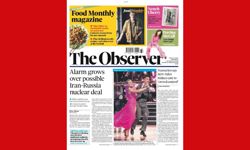As reported by the Newspaper Society: Many claims have been made by Hacked Off and others about how the Royal Charter will protect the press from interference by politicians –despite the fact that the Charter was drawn up by politicians and Hacked Off without any press involvement and imposed by ministers exercising the medieval power of royal prerogative.
Now Sir David Normington who, under the Royal Charter, appoints the Appointments Committee for the Recognition Panel, has disclosed in an announcement on his website that his role requires new powers which have been created for him by royal prerogative and that he can only act once he has been asked to by a minister:
"Although the Royal Charter has been granted, the Commissioner does not, as yet, have the legal powers to undertake the functions set out for him in the Charter. Article 4 of the Public Appointments Order in Council 2013 provides the mechanism by which the Commissioner can be given these additional functions. This involves a Minister writing asking him to take on additional functions, and for him to respond agreeing to the request.
"Until this exchange of letters takes place the Commissioner cannot begin the process of appointing the Board of the Recognition Panel."
Normally, as he makes clear elsewhere on his website, the Commissioner does not make appointments, but oversees the process by which they are made.
The Government resorted to the royal prerogative to create the Public Appointments Order in Council which gives him the power to appoint the Appointments Committee for the Recognition Panel, and those powers only come into being once a government minister fires the starting pistol.
And the Government’s power over the process does not end there; as Sir David makes clear, he will be entirely dependent on state funding: "The Commissioner for Public Appointments operates independently of the Government. The resources enabling [him] to undertake his usual function are provided by grant in aid from the Cabinet Office. Additional funding will be provided by the Government to enable the Commissioner to undertake the additional functions he is asked to perform under the Royal Charter."
The Commissioner is of course at pains to emphasise his independence: "There are plenty of examples of other regulators who are funded – and in some cases appointed – by the Government yet still operate fully independently. The Commissioner was asked to undertake these functions because of his independence and because the credibility of the appointments made to the Board of the Recognition Panel demands that they are made in a way that is entirely independent of Government and the oversight of Ministers."
But none of the regulators he cites monitor industries whose public service is to hold politicians to account. Newspaper and magazine publishers, not one of whom has signed up to the Government’s Recognition Panel, are bound to ask how the Commissioner can be truly independent when he can only act under powers granted by ministers, activated at the request of a minister, and funded by ministers.
David Newell, Director of the Newspaper Society and Newspaper Publishers Association, said last night: "It is deeply worrying that such a naked ‘Yes, Minister’ arrangement lies at the very core of the Government’s Royal Charter. It is also very worrying that the Commissioner is to be expected to compromise his independence by using the executive power of the state to begin the process of imposing a Government-created Recognition Panel on an industry which has universally rejected it.
"We trust he will think very hard indeed, and consult the industry, before acceding to this request."










